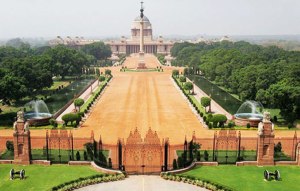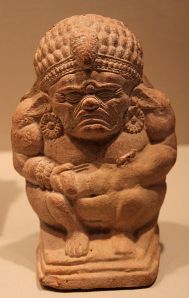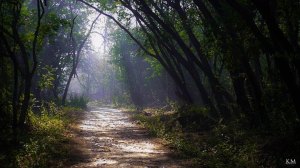The Chief Guest at the Inaugural Session of the Annual Day Celebrations of the Delhi School of Economics on 16 January, 2015 was our Chancellor, Prof. C. H. Hanumantha Rao. When I read the text of his address, I was struck by several of the observations he made and felt that many among us would be keen to learn some of the history of major institutions such as the Delhi School of Economics (DSE) and the Institute for Economics Growth (IEG), and also of the personal history of stalwarts who were associated with these institutions. Prof. Hanumantha Rao has been kind enough to let me reproduce the address in this blog.
 The Delhi School of Economics was founded by Professor V. K. R. V. Rao with a high ideal of training economists and other social scientists for their effective participation in nation-building. The existence of the Delhi School of Economics on the pattern of the London School of Economics inspired many among the younger generation in different parts of the country to benefit from this opportunity opened up for advanced learning. The same inspiration brought me with a zeal to the Delhi School of Economics in August 1957 from the Osmania University. I was lucky to be registered for Ph.D. at the DSE with encouragement from Prof. A. M. Khusro.
The Delhi School of Economics was founded by Professor V. K. R. V. Rao with a high ideal of training economists and other social scientists for their effective participation in nation-building. The existence of the Delhi School of Economics on the pattern of the London School of Economics inspired many among the younger generation in different parts of the country to benefit from this opportunity opened up for advanced learning. The same inspiration brought me with a zeal to the Delhi School of Economics in August 1957 from the Osmania University. I was lucky to be registered for Ph.D. at the DSE with encouragement from Prof. A. M. Khusro.
My first opportunity to listen to Prof. V. K. R. V. Rao at the DSE was in this Vivekananda Hall on the occasion of its Founder’s Day on 14th November, 1957. He spoke with great passion about the ideals of the DSE. First and foremost among these ideals he said was freedom of thought and expression. I came to know years later that his founding the DSE owed primarily to his own struggle for freedom of thought and expression. He narrated how, while speaking as a member of an official delegation in those days, he was interrupted by its head, a civil servant of the ICS cadre, by saying that economists are expected to ‘produce’ arguments in support of the official line and not air their ‘own’ views! This infuriated Prof. Rao who decided to resign from his post in the government the very next day to start an autonomous institution where scholars can enjoy freedom of thought and expression to be able to contribute to policy-making in a fearless manner.
Achieving academic excellence was another great ideal for him. For this purpose he recruited professors of great distinction from different universities in India and abroad. Apart from Professors B. N. Ganguli and P. N. Dhar who together with him formed a trio in the then small department of economics working tirelessly towards shaping the DSE, he brought, in the first round, eminent scholars like professors K. N. Raj, B. V. Krishnamurthy, M. N. Srinivas, M. S. A. Rao, Tapan Roy Chaudhury, A. M. Khusro, Siva Subramanyan, George Kuriyan, V. L. S. Prakash Rao and others.
The third ideal which he passionately exhorted the teachers and students to follow was social commitment which he thought was as important as technical competence. Drawing inspiration from the freedom movement, he felt that ensuring a just social order in the country was not possible without social commitment. Towards this end, he strongly believed in the need for an inter-disciplinary approach in addressing socioeconomic problems. Therefore, in all the institutions he established, namely, Delhi School of Economics, Institute of Economic Growth, and the Institute for Social and Economic Change at Bangalore, he took great pains to accommodate different disciplines in social sciences to facilitate fruitful interaction.
Thanks to the functioning of our democratic set-up for over 60 years and the existence of institutions such as the University Grants Commission and the Indian Council of Social Science Research, we enjoy today far greater measure of autonomy and freedom of thought and expression when compared to the immediate post-independence period.
In respect of academic excellence too, we are today in a much better position than in the early years of the DSE. I was a witness to the virtually demoralizing intellectual atmosphere in the room where the Ph. D. scholars used to be seated. I found that quite a few of them had already spent 5 to 7 years or more groping for the subject. To a considerable extent, this reflected the research culture in a typical Indian university in those days. The emphasis then was on producing a bulky thesis after a great deal of reading and summarizing the literature, with an objective of making a ‘lasting’ contribution to the subject! Happily, the focus gradually shifted to the quality of research questions addressed in the thesis, methods of analysis followed and the significance of the findings arrived at.
At the time of founding of the IEG in 1958, certain sections of the DSE, including the Economic Development Section, headed by Prof. A. M. Khusro, and supported by the Ford Foundation, where I was a Ph. D. scholar, were shifted to the IEG. Having been associated with the Institute of Economic Growth in the neighbourhood for 50 years until its Golden Jubilee Celebrations in 2008, I can testify to the beneficial impact that the DSE had all along on the research work done at the IEG.
 Many in the IEG faculty had completed their Ph.D. from the DSE and continued their academic links with the parent institution. IEG faculty has had an active collaboration with the DSE in providing guidance to the M. Phil. as well as Ph. D. students. The use of econometric techniques was virtually non-existent in the early years of DSE, but very soon became popular with the stalwarts in the subject like Prof. A. L. Nagar and Prof. K. L. Krishna coming on the scene. The IEG and DSE have had major collaborative projects in Macro-Econometric Modelling for India with Professor K. Krishnamurthy of IEG and Professor V. N. Pandit of DSE as leaders of the project. When academic institutions happen to be next door neighbours with common interest, scholars across these institutions easily walking into each other’s rooms, not uncommon in both the institutions, for exchanging views and engaging in discussions could perhaps prove to be as fruitful as projects jointly undertaken.
Many in the IEG faculty had completed their Ph.D. from the DSE and continued their academic links with the parent institution. IEG faculty has had an active collaboration with the DSE in providing guidance to the M. Phil. as well as Ph. D. students. The use of econometric techniques was virtually non-existent in the early years of DSE, but very soon became popular with the stalwarts in the subject like Prof. A. L. Nagar and Prof. K. L. Krishna coming on the scene. The IEG and DSE have had major collaborative projects in Macro-Econometric Modelling for India with Professor K. Krishnamurthy of IEG and Professor V. N. Pandit of DSE as leaders of the project. When academic institutions happen to be next door neighbours with common interest, scholars across these institutions easily walking into each other’s rooms, not uncommon in both the institutions, for exchanging views and engaging in discussions could perhaps prove to be as fruitful as projects jointly undertaken.
The scholars of both the institutions are well-known for their broader approach to development. For example, the issues of sustainability and social justice have figured prominently in their research agenda. Besides, they have actively participated in shaping socio-economic policies in the country as members of various expert committees and commissions. Prominent among economists well known for their broader approach to development are Professors V. K. R. V. Rao, P. N. Dhar and Raj Krishna who starting from the DSE made substantial contributions at the IEG. Similarly, the contributions made by scholars like K. N. Raj, Sukhamoy Chakravarty and Amartya Sen from the DSE on broader issues of development have greatly inspired scholars in both these institutions and in the country at large towards engaging themselves on socially relevant issues. We from the DSE and IEG are proud of the fact that Prof. Manmohan Singh, the architect of economic reforms in the country as Finance Minister in the early 1990s had been a professor at the DSE before he joined the government, and is president of IEG. Again, as Prime Minister he brought in the perspective of ‘inclusive growth’ which has been widely supported in the country.
All these scholars have been open to inter-disciplinary approach to development. Carrying this tradition forward requires harnessing satisfactorily the potential for collaboration between scholars working in different disciplines. Some interaction between such scholars is inevitable when they are working under the same roof, as, for example, when they meet every day at tea in the common room! A more serious exposure to each other’s work takes place through participation in seminars. Attending each others’ seminars apart, it needs a deliberate effort to formulate projects where scholars from different disciplines collaborate on issues of applied nature. Most of our failures on the policy front are traceable to the lack of such a broader inter-disciplinary approach.
Finally, I would like to express my sincere gratitude to the organizers of this event for remembering me as an old boy of DSE and providing me the opportunity of meeting so many friends at these celebrations.
The emphasis added above is mine. I believe that we can all benefit from more interaction, by enjoying each other’s work in whatever way possible. Institutions like the DSE and the ISE or indeed the CSEC or CESS in Hyderabad have all benefited from a strong emphasis on interaction and collaboration, and there is much to learn from examples, especially when they have touched our lives so strongly. Prof. Hanumantha Rao’s tenure as our Chancellor ends this month. We are truly fortunate to have been associated with him.
 The President of India, Shri Pranab Mukherjee will present Visitor’s Awards for Central Universities in the categories of ‘Best University’, ‘Innovation’ and ‘Research’ for the year 2015 at a function to be held at Rashtrapati Bhavan on February 4, 2015. This function will coincide with the third Conference of Vice Chancellors of Central Universities scheduled to be held from February 4-5, 2015.
The President of India, Shri Pranab Mukherjee will present Visitor’s Awards for Central Universities in the categories of ‘Best University’, ‘Innovation’ and ‘Research’ for the year 2015 at a function to be held at Rashtrapati Bhavan on February 4, 2015. This function will coincide with the third Conference of Vice Chancellors of Central Universities scheduled to be held from February 4-5, 2015. 






